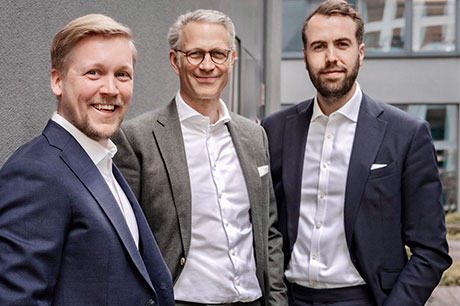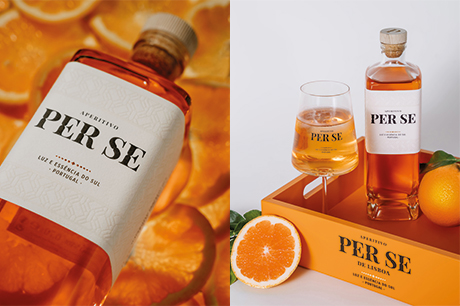Incheon T2 eyes 3,000sq m of extra duty free space
By Luke Barras-hill |
Incheon International Airport Corporation (IIAC) intends to scale up the duty free footprint at Terminal 2 by adding more than 3,000sq m of shopping space.
The commercial plans, revealed during a recent interview with IIAC Director/Duty Free Management Team Sung-Bin Im, *could progress from 2023 upon completion of the Terminal 2 expansion programme.
This forms part of the four-phase circa KRW4.8 trillion ($4 billion) airport construction project, which will lift passenger capacity to approximately 100 million by 2024.
“We are planning to enlarge the Terminal 2 space – our capacity of Terminal 2 is only 18 million, but in 2019 we handled more than 18 million,” he explained. “After expansion, we’ll add more than 3,000sq m for the duty free shops.”
Lotte Duty Free, The Shilla Duty Free and Shinsegae Duty Free all exert a strong influence at Terminal 2.
TIMING MAY BE IMPORTANT
If the aforementioned timeline for execution (2023 onwards) proves correct, it could mean the new duty free space appears after the expiry of some of the existing concession contracts (five years). Terminal 2 opened in January 2018.
The airport is already planning to offer more arrivals duty free shops in 2023 on the conclusion of the Terminal 2’s phased extension, as reported exclusively last year.
In December, it emerged that all airports in Korea would be eligible to implement arrivals duty free shops; at the same time, tobacco was added to the list of sellable products.
Currently, SM Duty Free and Entas Duty Free operate arrivals duty free concessions at Incheon Airport after seizing five-year contracts last year.
“Our arrivals duty free business is at the trial stage –before opening arrivals duty free shops there were so many concerns relating to customs, quarantine and limitations,” continued Im. “These days our government is interested in supporting SME operators so we need to select among them.”
In the meantime, attention remains focused squarely on developments at Terminal 1, where IIAC recently named Lotte Duty Free, The Shilla Duty Free and Hyundai Duty Free as preferred bidders for a slew of new five-year (plus an additional five year) duty free contracts.

SM Duty Free runs two arrivals shops spanning 380sq m at the eastern and western zones of Terminal 1.
However, IIAC is yet to declare its plans for DF2 (beauty), which failed to attract any interest, and DF6 (fashion), which drew Hyundai Department Store Duty Free as the sole bidder.
Despite much buzz around the new contracts, the bidding failed to attract any international retail operators.
Adherence to South Korea’s controversial dual-stage tender assessment process, coupled with claims of overheated competition and excessive financial bids have raised questions in the past as to whether these conditions are putting off potential suitors.
“In terms of the bidding conditions, there is no big change,” clarified Im. “Our government wants no change. Korean duty free business conditions [means] companies struggle; some have closed their businesses and the government is very worried about that kind of situation. If our airport gives some big changes in our tender structure, the government will worry there is another big challenge.
“Korean duty free players are very competitive. These days, they are enlarging their businesses overseas and, as I know, they bid the highest prices. Other foreign operators don’t want to pay that level of amount – that is my guess. Our government do not prevent foreign companies coming to the bidding, they just want to examine their business stability.
“Usually, airport bidding is just one presentation to the airport authority. In Korea, our business operators have to present their business plan to us and then our government. It is I think too much of a burden to them and Korean companies bid a very high price.”
At present, Terminal 1 handles approximately 70% of passengers, with Terminal 2 making up the remainder. Duty free and travel retail sales take a similar share.
FASHION PERFORMS
In Terminal 2 specifically, fashion category sales were booming in 2019. This is attributed in part to the allocation of a central area thats showcases high-fashion boutiques, including Chanel, Gucci, Valentino and a raft of others.
IIAC has highlighted to TRBusiness on several occasions the advantage of having single operator-run concessions in Terminal 2 for P&C, L&T and fashion/accessories.
Terminal 1 on the other hand boasts two concessionaires for each of the general enterprises.
Lotte Duty Free and The Shilla Duty Free operate the liquor, tobacco and packaged foods and perfumes & cosmetics concessions, respectively, in Terminal 2. Shinsegae Duty Free runs fashion & accessories concessions.
Shop allocations for boutique and fashion in Terminal 2 have proved ‘very successful’, according to Im, levering a strong increase in sales. In November for instance, the airport achieved a 12% increase in year-on-year fashion/leathergoods and boutique sales, with that figure soaring to +20% in T2 alone.
As reported, Incheon Airport recorded sales of $2.43bn (+2.7%) last year with international volumes growing at +4.5% to total approximately 71m.
In comments shared with TRBusiness at the end of last year, the airport pointed to currency-related losses in H1 as the reason for a more muted growth performance in the first 10 months.
“Growth in the first six months was a little bit lower than expectation, but after July our sales grew very fast,” added Im.
Cosmetics and perfumes remains the front-runner in sales terms, taking a 40% share ($953m) of revenue in 2019 , followed by liquor & tobacco with a 23% slice of sales ($540m).
*Interview conducted prior to the peak of the Covid-19 outbreak in South Korea in mid-February to early March, which makes it extremely difficult to predict how this could impact the path of infrastructure investment at Incheon Airport and elsewhere in Korea in the immediate future. While at the time of writing the country appears to be making significant gains in stabilising the virus’s spread, the industry has acknowledged that it is braced for big losses in duty free spending this year.
MEADFA Conference 2024 ‘heading to Abu Dhabi on 17-19 November’
This year’s Middle East & Africa Duty Free Association (MEADFA) Conference will take...
DFWC Q1 2024 KPI Monitor indicates rise in duty free impulse purchases
Impulse purchasing within global duty free is on the rise, according to the latest Duty Free...
Avolta details “bold and ambitious” goals to grow its APAC business
With a number of key developments coming to fruition, including its operations at Wuhan Tianhe...
-
 Asia & Pacific,
Asia & Pacific,MEADFA Conference 2024 ‘heading to Abu Dhabi on 17-19 November’
-

-


In the Magazine
TRBusiness Magazine is free to access. Read the latest issue now.

 Trbusiness. The travel retail Trbusiness. The magazine for global retail and duty free professionals.
Trbusiness. The travel retail Trbusiness. The magazine for global retail and duty free professionals.
























